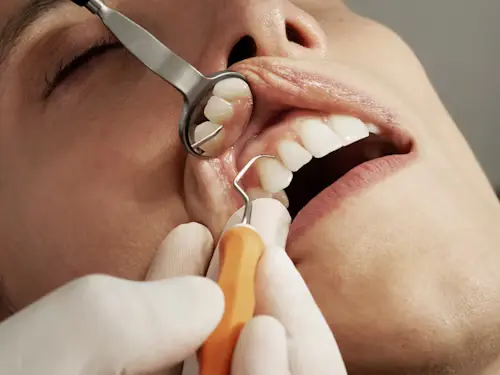The Journey to a Perfect Smile
Are you considering dental implants but feeling overwhelmed by the potential costs? You’re not alone. Dental implants are a significant investment in your oral health and overall well-being. This blog post aims to demystify the cost of full mouth dental implants, providing valuable insights for anyone contemplating this transformative procedure. Whether you’re suffering from severe tooth loss or looking to replace dentures with a more permanent solution, this guide will help you understand the various factors that influence the cost and why it’s worth every penny.
Understanding Full Mouth Dental Implants
Full mouth dental implants offer a comprehensive solution for those missing most or all of their teeth. Unlike traditional dentures, which can be uncomfortable and inconvenient, dental implants provide a permanent, stable, and natural-looking alternative.
What Are Full Mouth Dental Implants?
Full mouth dental implants involve placing multiple dental implants in the upper and lower jaws to support a full set of artificial teeth. The procedure typically requires several stages, including consultation, surgery, and fitting of prosthetic teeth.
Why Choose Full Mouth Dental Implants?
The benefits of full mouth dental implants go beyond aesthetics. They improve chewing ability, enhance speech, and prevent bone loss. Moreover, they offer a long-term solution that can last a lifetime with proper care.
Who Is a Candidate for Full Mouth Dental Implants?

Ideal candidates are those with significant tooth loss, good overall health, and sufficient jawbone density. A thorough consultation with a dental implant specialist is essential to determine suitability.
Factors Influencing the Cost of Full Mouth Dental Implants
Understanding the cost of full mouth dental implants requires a look at various factors. Each element contributes to the overall expense, making it a personalized investment.
Geographic Location
The cost can vary significantly based on where you live. Urban areas with higher living costs often have higher dental implant fees compared to rural locations.
Experience and Expertise of the Dentist
Dentists with specialized training and extensive experience in dental implants may charge more. However, their expertise can ensure a successful and smoother procedure.
Type of Implants and Materials Used
Different types of implants and materials used in prosthetic teeth can influence the cost. Premium materials and advanced technology often come at a higher price but offer better durability and aesthetics.
Breakdown of Costs Involved
To give you a clearer picture, let’s break down the costs involved in a full mouth dental implant procedure. This will help you understand where your money is going.
Initial Consultation and Diagnostic Tests
The journey begins with an initial consultation, including diagnostic tests like X-rays and 3D imaging. These tests are crucial for planning the procedure and can cost between $200 and $500.
Surgical Procedures
The surgical phase includes placing the implants into the jawbone. This stage may also involve additional procedures like bone grafting or sinus lifts, depending on individual needs. Surgery costs can range from $1,500 to $6,000 per implant.
Prosthetic Teeth
Once the implants have integrated with the jawbone, prosthetic teeth, often made from high-quality materials like zirconia or porcelain, are fitted. The cost for a complete set of prosthetic teeth can vary from $15,000 to $30,000.
Financing Options and Insurance Coverage
Given the high cost, many patients explore financing options and insurance coverage to make the procedure more affordable.
Dental Insurance
While most dental insurance plans don’t cover the full cost of dental implants, some may offer partial coverage. It’s essential to check with your provider about what is included.
Payment Plans and Financing
Many dental clinics offer payment plans and financing options to spread the cost over time. Companies like CareCredit specialize in healthcare financing, making it easier to manage the expense.
Dental Discount Plans
Dental discount plans can also provide significant savings on procedures, including implants. These plans typically require an annual fee in exchange for discounted rates on dental services.
Comparing Costs: Dental Implants vs. Alternatives
It’s helpful to compare the costs of dental implants with other tooth replacement options to understand their value.
Dentures
Traditional dentures are less expensive but come with drawbacks like discomfort and the need for frequent replacements. They typically cost between $1,000 and $3,000 per arch.
Bridges
Dental bridges are another alternative, costing between $2,000 and $5,000 per bridge. However, they may require adjacent teeth to be altered and don’t prevent bone loss.
Long-Term Value of Dental Implants
Though initially more expensive, dental implants offer superior comfort, functionality, and longevity, making them a worthwhile investment in the long run.
Benefits of Investing in Full Mouth Dental Implants
The benefits of dental implants extend beyond the immediate physical improvements.
Enhanced Quality of Life
With dental implants, you can eat, speak, and smile with confidence, significantly enhancing your quality of life.
Improved Oral Health
Dental implants function like natural teeth, promoting better oral health by preventing bone loss and gum recession.
Aesthetic Appeal
Custom-designed to match your natural teeth, dental implants provide a seamless and aesthetically pleasing appearance.
Potential Risks and Complications
Like any surgical procedure, dental implants come with potential risks and complications that should be considered.
Infection and Inflammation
Infections can occur at the implant site, requiring additional treatment. Proper oral hygiene and post-operative care are vital to minimizing this risk.
Implant Failure
Though rare, implants can fail to integrate with the jawbone. Factors like smoking and certain medical conditions can increase this risk.
Nerve Damage
Improper placement of implants can lead to nerve damage, causing pain or numbness. Choosing an experienced dentist can help mitigate this risk.
Preparation and Aftercare
Proper preparation and aftercare are crucial for the success of full mouth dental implants.
Pre-Procedure Preparation
Preparation may involve a comprehensive dental exam, including X-rays and impressions, to plan the procedure accurately. Patients may also need to stop smoking and manage medical conditions.
Post-Procedure Care
Post-operative care includes taking prescribed medications, maintaining good oral hygiene, and attending follow-up appointments to monitor healing.
Long-Term Maintenance
Long-term success requires regular dental visits, diligent oral care, and avoiding habits like smoking that can affect implant longevity.
Real-Life Success Stories
Hearing from others who have undergone the procedure can provide inspiration and reassurance.
Testimonial: John’s Journey to a New Smile
John, a 55-year-old businessman, shares his experience with full mouth dental-implants, highlighting the positive impact on his professional and personal life.
Testimonial: Maria’s Transformation
Maria, a retiree, discusses how dental_implants have restored her confidence and allowed her to enjoy her favorite foods again.
Lessons Learned from Real Patients
Learning from real patient experiences can offer valuable insights and tips for those considering the procedure.








